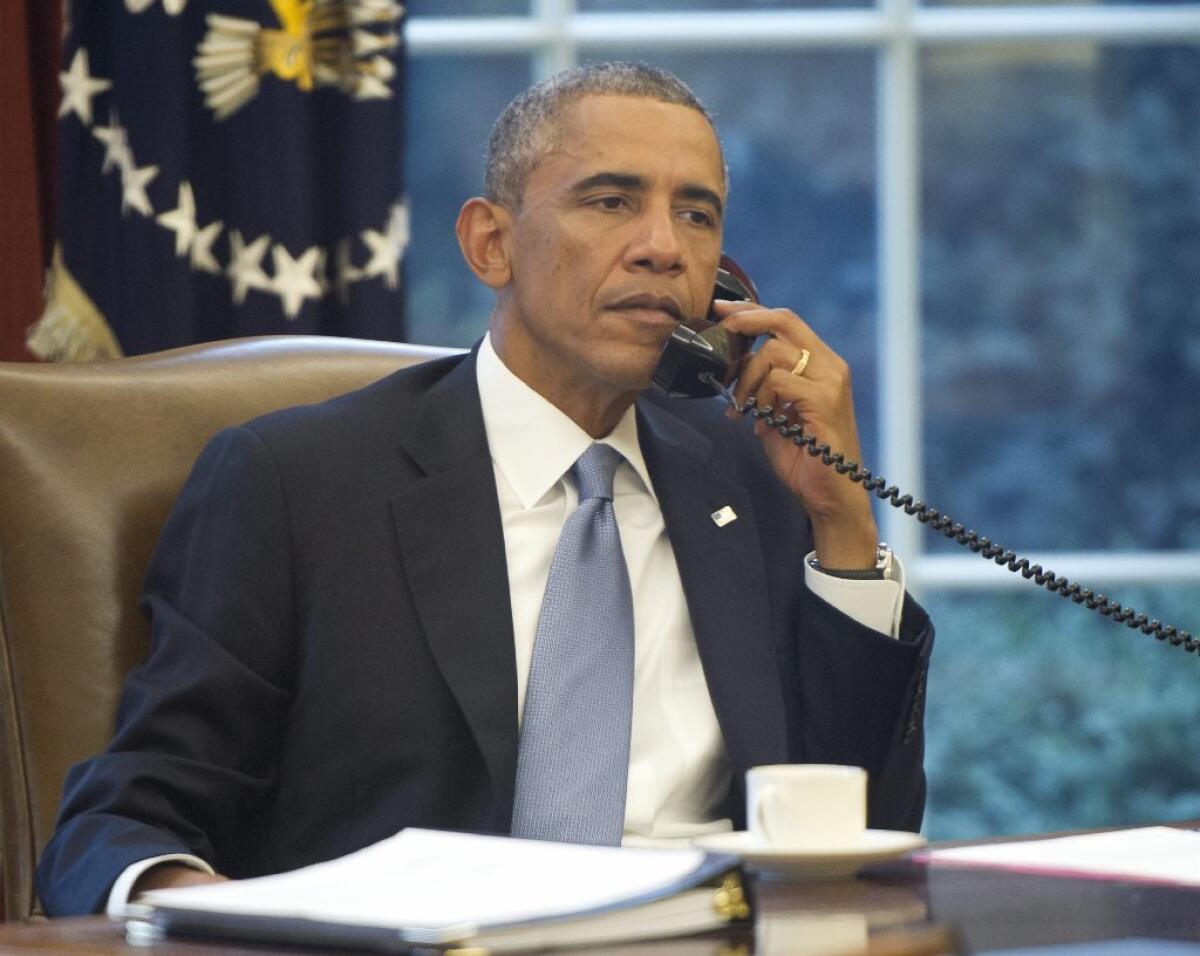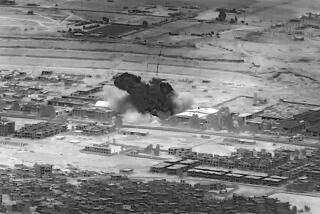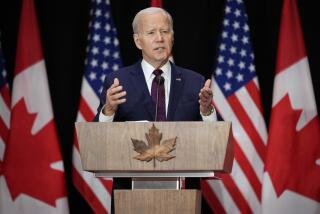Editorial: Obama takes on Islamic State

Even if it doesn’t represent an immediate threat to the American homeland, the Islamic State poses a danger to U.S. interests in the Middle East as well as to the people of Iraq and Syria, President Obama said in a prime-time address to the nation Wednesday evening. What’s more, its savagery and intolerance are breathtaking.
That’s why, Obama said, he is determined to “degrade, and ultimately destroy” the Islamic State “through a “comprehensive and sustained counter-terrorism strategy.” U.S. air power would be part of the plan in both Iraq and Syria, but not U.S. combat forces. Boots on the ground would belong to “partner forces.”
The president is right about the shared global interests in stopping the Islamic State. After a decade of war in Iraq and Afghanistan, though, the decision to re-engage militarily in the region is a fraught and complicated one. As he moves forward, he needs to be mindful of the dangers of mission creep and assiduous in pressing other countries to help in the effort. Finally, he should seek congressional endorsement for any sustained use of military force against this enemy.
When Obama ordered airstrikes against Islamic positions in northern Iraq last month, the stated reasons were to protect U.S. personnel and to facilitate the rescue of members of a religious minority that had been forced into a remote area by Islamic State fighters and faced starvation. Even then it was obvious that the air campaign had the additional purpose of shoring up Iraqi and Kurdish forces and preventing the militants from making further advances. So far there have been 154 strikes, and it would be naive to suggest that their rationale is solely to protect Americans or respond to humanitarian emergencies. The airstrikes are designed to prevent the violent unraveling of the country. Obama conceded as much in his speech when he linked the air campaign and an increased deployment of military advisers to efforts to establish a more inclusive government in Baghdad — one that will reach out to the Sunni Muslims whose disaffection with the Shia-dominated government of former Prime Minister Nouri Maliki made them easy recruits for the Islamic State.
U.S. military involvement in Syria is a far more complicated proposition militarily and diplomatically than comparable action in Iraq. That’s especially true of possible airstrikes on Islamic State positions in that country. Ramped-up support for forces that oppose both Assad and the Islamic State would be a less provocative strategy, though perhaps also a less effective one. Now as before the rise of the Islamic State, the Syrian civil war is a chaotic battleground in which aid for “moderate” insurgents can end up in the hands of extremists.
This page has been supportive of Obama’s policy of extricating the U.S. from conflicts in Afghanistan and Iraq that have cost thousands of American lives. The recent success of the Islamic State has changed the military and political equation, but the U.S. must not forget the lessons of the last 10 years in the region.
In a democracy, the use of military might requires ratification by the people’s representatives. Some have argued that taking action against the Islamic State would be legal under congressional authorizations for the use of force against Saddam Hussein’s Iraq and the 9/11 conspirators. That isn’t enough. Congress — this Congress — should vote on any and all military action Obama takes against this new enemy.
Follow the Opinion section on Twitter @latimesopinion
More to Read
A cure for the common opinion
Get thought-provoking perspectives with our weekly newsletter.
You may occasionally receive promotional content from the Los Angeles Times.










